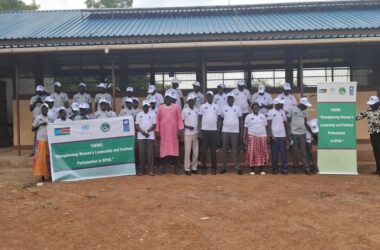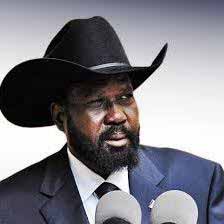By Mary Poni
The World Food Programme sadly said 2.8 million children are out of school saying girls are the most victimized gender in every society in the country.
The Acting World Food Program Director in South Sudan Adeyinka Badjo asked in an event held in Juba whether people concerned about education system are aware of this situation.
The event was attended by the ministers from both state and national governments including development partners.
The WFP acting country representative said poor school enrollment statistics is a challenge to the children growth and development as education is key to development.
“Though there are children who are better off, still there is huge number of children who are out of the education system and need to be brought to the system.”
Badejo said that the WFP is working globally to end world hunger not only looking at ending world hunger; they are also looking at opportunity to promote the development of children particularly girls.
“We are looking at the opportunities to promote the development of children particularly girls,” she said.
She stated that the situation in South Sudan today is that hunger is growing across the country because of the conflict, the climate crisis including the economic crisis.
She said South Sudan has a huge potential people not only the youths but also in its climate for education and agriculture.
Badejo acknowledged that the world food program is committed to working with the government of South Sudan and partners to create opportunities for the children of this country especially the girls.
She encouraged the young girls to be responsible and to know their rights, saying as WFP, they are looking in to their authorities, the government and the partners to continue creating a conducive environment for the benefit of South Sudanese youth girls.
“We need to nurture and support the girls and we need to identify the barriers keeping away girls from getting education,” she said.
According to the UNICEF Education Officer Melling Christine, in the last few years, there have been issues that matter to girls among the government, policy makers, the general public and more opportunity for girls.
She said that the investment in girls’ rights remain limited as they continue to encounter challenges to fulfill their potential to education and it is made worse by the situation of the COVID-19 pandemic.
“Given the skills and opportunities, they can be change makers by driving progress in their communities and building stronger strength for all including girls, boys and women”.
“It is time for us parents to stand accountable to invest in the future and believe in the agencies, leadership and potential,” Christine said.


